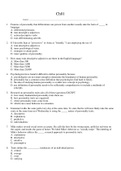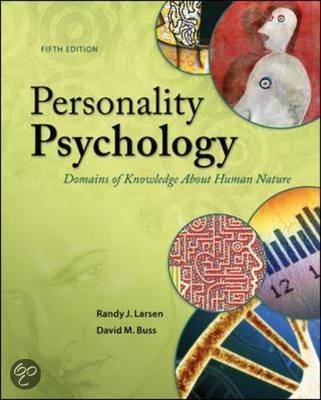Exam (elaborations)
Personality Psychology, Larsen - Exam Preparation Test Bank (Downloadable Doc)
- Course
- Institution
- Book
Description: Test Bank for Personality Psychology, Larsen, 5e prepares you efficiently for your upcoming exams. It contains practice test questions tailored for your textbook. Personality Psychology, Larsen, 5e Test bank allow you to access quizzes and multiple choice questions written specifica...
[Show more]




